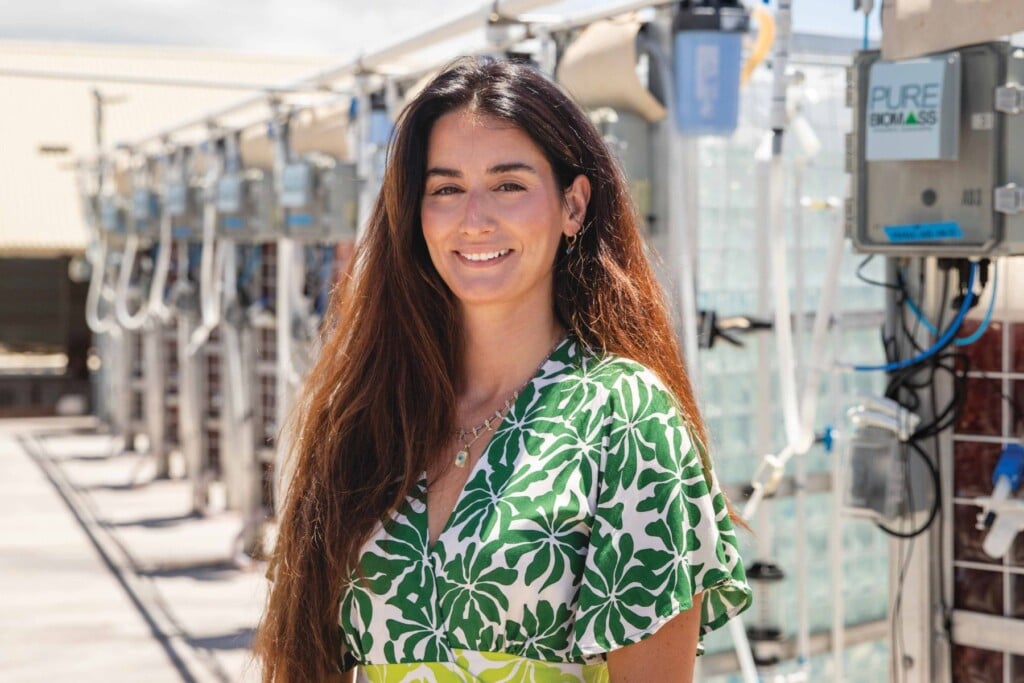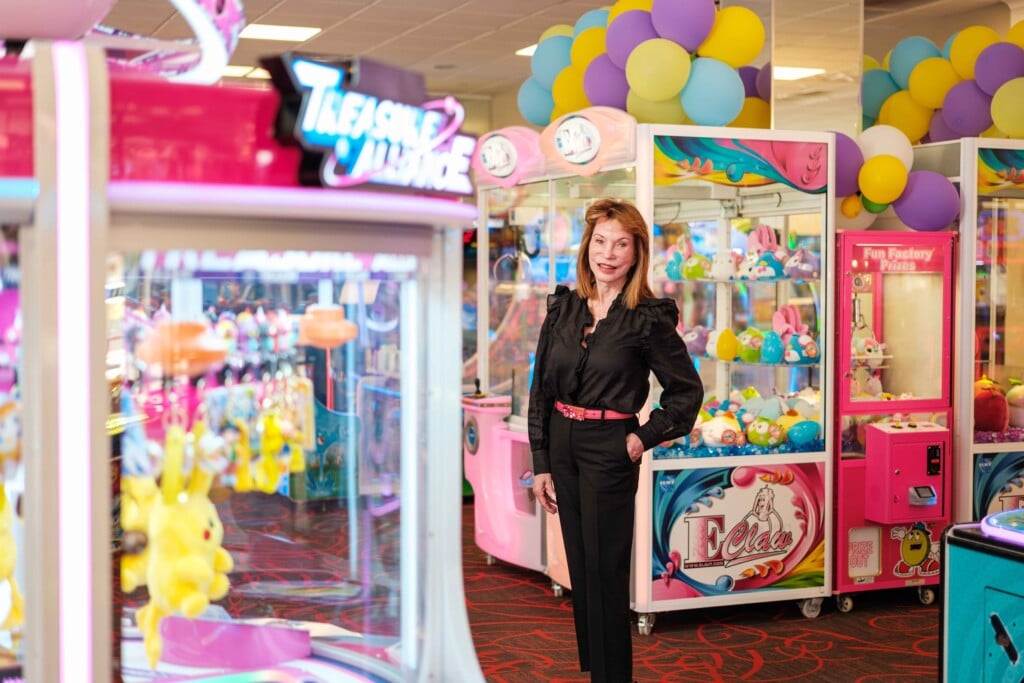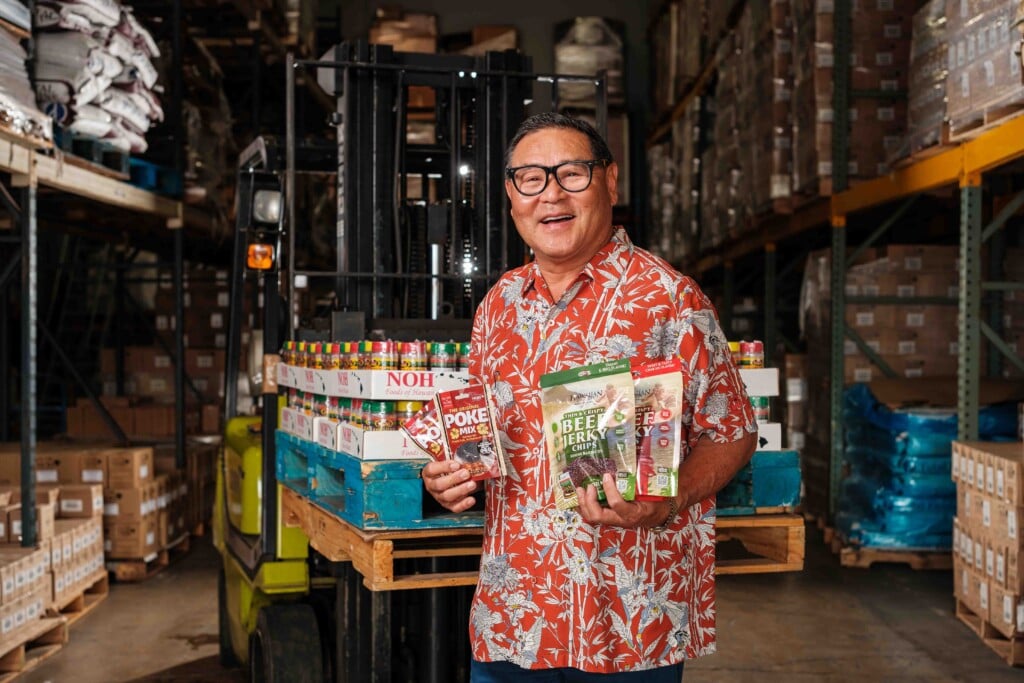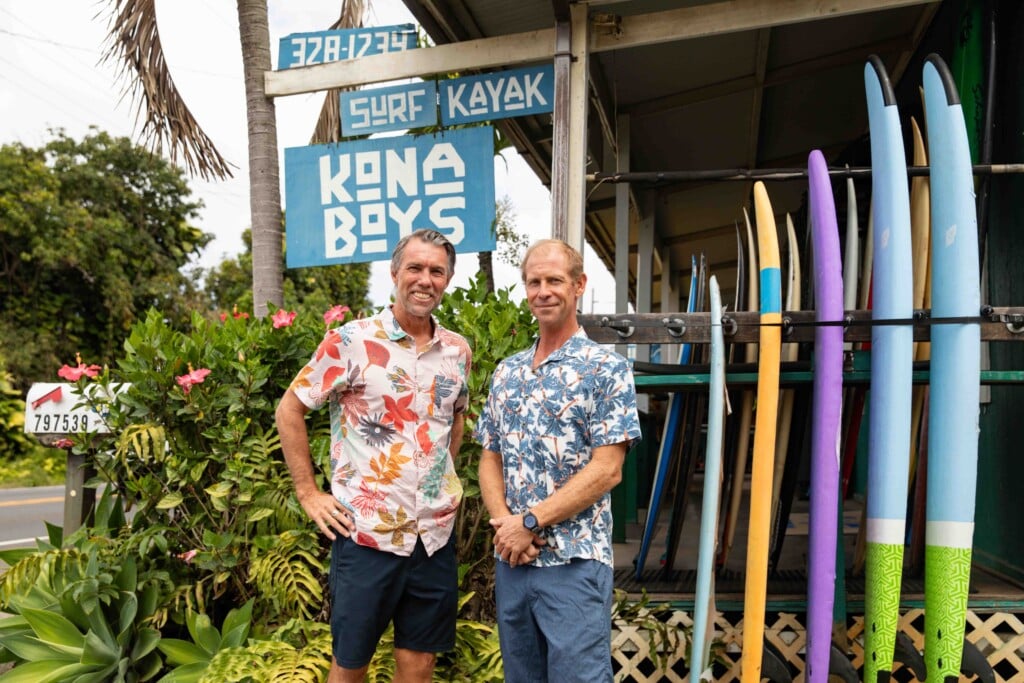Symbrosia Harvests Seaweed in an Innovative Strategy to Slow Climate Change
2024 SmallBiz Editor’s Choice Award winner: Founder Alexia Akbay says its nutritional supplement for livestock dramatically cuts their methane emissions.

Symbrosia harvests seaweed, but not for human consumption. The company’s product, SeaGraze, is sprinkled into the feed of cows and other livestock.
Seaweed has been proven to reduce methane emissions from livestock by 90% in replicated scientific trials, the company says. In real life, where procedures can’t always be perfectly achieved, that reduction is still an impressive 70%-80%. Symbrosia calls it a groundbreaking discovery in the effort to slow climate change.
“Our mission is to work alongside farmers to solve climate change,” says Alexia Akbay, who founded Symbrosia in 2018.
The U.S. Environmental Protection Agency calls methane the second-most abundant anthropogenic greenhouse gas after carbon dioxide, and the U.N. Environment Programme says it’s responsible for about a third of the Earth’s warming.
“It’s a greenhouse gas that is 30 times more potent than carbon dioxide,” Akbay says. “So it’s actually a good strategy to focus on reducing methane emissions because we’ll see a steeper cooling effect if we work on the more potent greenhouse gases first.”
The main source of human-influenced methane emissions is by far livestock – especially dairy and beef cattle. Studies estimate the global livestock sector accounts for 10%-20% of all greenhouse gas emissions in the world. A cow’s digestive process creates the methane, which is released when the animal burps.
But a specific seaweed, the Asparagopsis variety, contains bromoform, which disrupts this chemical reaction in a cow’s digestive tract without harming the animal. Quite the opposite, in fact. Akbay says SeaGraze is a “nutritional supplement for organic livestock because it’s a great source of minerals that they need.”
The most promising species at negating methane, Asparagopsis taxiformis, is a Pacific seaweed native to Hawai‘i, where it’s known as limu kohu. Symbrosia’s land-based aquaculture farm is located in Kailua-Kona on Hawai‘i Island because of the access to deep sea water and year-round sunshine.
SeaGraze is currently being used at farms in Hawai‘i, Minnesota, Colorado, Oregon and California.
It isn’t the only product of its kind on the market, but Symbrosia stands out against its competitors, Akbay says. “Where we really differentiate is that we have a technical founding team.”
“We’re very data driven and have implemented a lot of automation in our farm to support scaling up. There’s also a number of unique research projects underway to enhance the microbiome of the seaweed to promote yielding gains,” she says, among other innovations.
Symbrosia says it is committed to sustainable farming practices, such as using 100% renewable energy, using no fresh water and relying mostly on the sun to grow its aquaculture crops.
Another focus is employing Native Hawaiians and longtime locals. “Working on professional development and offering management leadership opportunities to those folks is actually a metric we track,” Akbay says.





